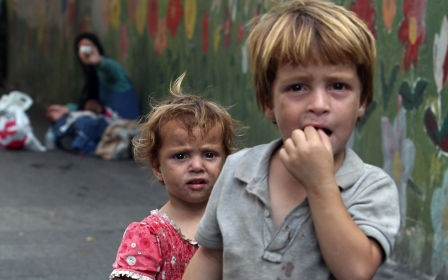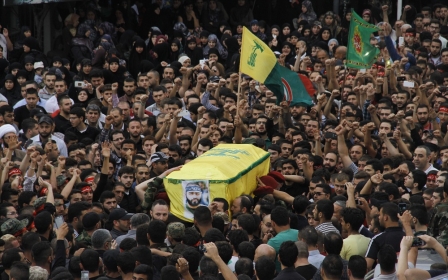Blast wounds 3 Lebanon troops near Syria border: army

A roadside bomb struck a Lebanese army vehicle on Friday, wounding three soldiers near the flashpoint town of Arsal on the border with Syria, the military said.
After the blast unidentified gunmen on the outskirts of Arsal opened fire on the troops, who shot back, the army added.
"At around 9:00 am (0700 GMT) an explosive device hit a military vehicle as it was patrolling around the town of Arsal. The device was planted on the side of the road. Three troops, among them an officer, were wounded," it said in a statement.
In August, the Sunni town of Arsal saw a fierce battle pitting the army against jihadists who streamed in from Syria across the Lebanese border.
Fighting ended with a truce mediated by local clerics, but the jihadists took with them 30 Lebanese army and police hostages. Three have since been executed, and Qatari-mediated efforts to free the rest have so far yielded no concrete result.
Lebanon is sharply divided over the war in neighbouring Syria, and has regularly seen deadly battles linked to the conflict next door.
Most Sunnis support the revolt seeking the ouster of Syrian President Bashar al-Assad, while Shiites generally back Damascus and its ally Hezbollah.
New MEE newsletter: Jerusalem Dispatch
Sign up to get the latest insights and analysis on Israel-Palestine, alongside Turkey Unpacked and other MEE newsletters
Middle East Eye delivers independent and unrivalled coverage and analysis of the Middle East, North Africa and beyond. To learn more about republishing this content and the associated fees, please fill out this form. More about MEE can be found here.




